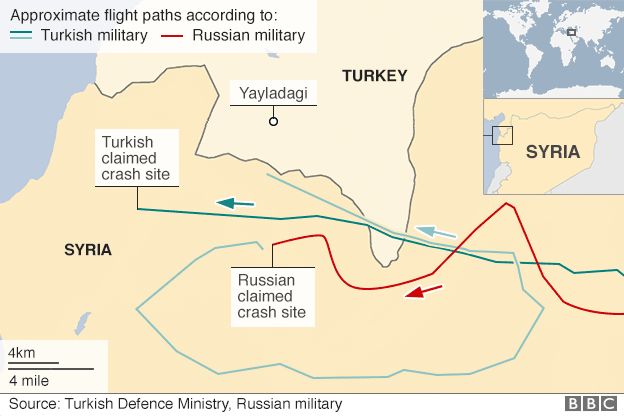 The Nigeria Governors Forum recently expressed worries that more states may not be able to pay workers salaries if the revenue of the country continues to be on the decline. The NGF, through its chairman, Governor Abdul’aziz Yari of Zamfara, said “the situation is no longer the same when we use to pay N18, 000 minimum wage when oil was 126 dollars; now oil price is 41 dollars.”
The Nigeria Governors Forum recently expressed worries that more states may not be able to pay workers salaries if the revenue of the country continues to be on the decline. The NGF, through its chairman, Governor Abdul’aziz Yari of Zamfara, said “the situation is no longer the same when we use to pay N18, 000 minimum wage when oil was 126 dollars; now oil price is 41 dollars.”
The governors also committed to diversifying the nation’s economic base, a cardinal objective of the President Muhammadu Buhari’s administration. In the words of the Governors Forum chair after their meeting: “We will diversify our economy in the area of agriculture and mining. But at the same time, we should understand our situation where some of us (states) today are taking N100 million take home (monthly allocation) and then have salaries in particular of over N2 billion to pay.”
These commentary from the governors have thrown up many issues which many Nigerians have been raising for several decades and have gone unheeded or immaturely politicised. Some even viewed very positive agitations with sedentary ethnic prism. What the comments from the governors forum meant is that most of the governors, particularly the second termers (who should know better) do not have any agenda for development of their states. It also means that the governors have based their campaign promises and development agenda solely on oil revenue.
Shockingly to many Nigerians, oil revenue did not crash over night and it is a common knowledge that oil resource from elementary economics knowledge is open to volatility. Minimum wage of N18,000 paid to Nigerian workers was not agreed to when oil price was $126 per barrel. In fact, the national minimum wage came into existence after almost two years of agitation and eventual negotiation by the tripartite of government (represented by the federal and state governments), the Nigeria Employers Consultative Association, NECA, representing other employers (in the private sector) and organised Labour. This was in 2011 and at that time, the price of Nigerian crude averaged $100 and not $126 as claimed by the governors.
Secondly, Nigerians opposed to the creation of more states have always argued that existing states were not viable as most of them were depending on oil revenue for their survival and most opposing voices to the clamour for new states were actually canvassing for the abolition of states and return to regional governments and resource control as it were in pre-independence Nigeria and early years of post-independence. But little minds, who always do not see beyond the now or their nostrils were always shouting them down and having their way in the National Assembly. But today, we are face to face with the reality of what people have been talking about.
To make matters worse, analysts have predicted that with the alignment and realignment of global forces in the Middle East and countries like Iraq and Iran, as well as the US pumping their oil into the international market, the price of crude could crash to as low as $20 per barrel. Where does this leave Nigeria?
Now, on assumption of office the Buhari administration announced a bail out to governors who were owing their workers several months of unpaid salaries. Most of them who applied have received the facility vide the CBN and it is said to be a long term concessionary facility to the benefiting states. Twenty seven states went for the bail out.
Take away oil revenue, apart from Lagos and Edo which are serious about the collection of Internally Generated Revenue, IGR, all others may close shop or be declared bankrupt soon, if oil price gets down to its knees any time from now.
The governors who have received bailout funds, instead of wearing their thinking caps as the governors of Edo and Lagos have done, are planning to go cap in hand again to meet the cash cow(Federal Government) to discuss how they would survive. This is an unbelievably naive action to take! They just need to go back to where we are coming from before the petro-dollar era. Foresighted governors such as Comrade Adams Oshiomhole and then Fashola of Lagos, now Ambode, had seen the need, long ago, to look beyond oil. This explains why when other governors are weeping like Sam Mbakwe of old Imo State, unable to pay salaries of their workers for months, Oshiomhole and Ambode are not only paying as and when due, but are still embarking on massive development projects.
Why should the governors go and meet Buhari again? For what? The governors need now to face the reality squarely. They need , on their own, to go back to the drawing board or ask their colleagues in Edo and Lagos to teach them how to raise money internally without having to wait for oil revenue given the challenge thrown up by oil. There is need for the governors to be more serious than ever in collecting their taxes. States like Rivers of Amaechi of old came up with a Compulsory Saving Law which provides for the future when the oil money dries up. They were saving N1billion every month. Governor Wike should now use the savings that accrued to that policy to diversify the revenue base of Rivers by creating the enabling environment for industries to thrive and then he goes ahead to collect taxes to pay workers salaries and finance capital development. Other states need to also look inwards and create the environment for the development of their agricultural and mining sectors and go ahead to collect taxes without looking at faces. It cannot be a paddy, paddy thing anymore.Also, the governors should not contemplate sacking civil servants in the employment of their states because I believe strongly that labour creates wealth. Government would need all the workers one way or the other but need to create the right environment for businesses to thrive in their various states as quickly as possible. Electricity must be fixed, water must flow, roads must be provided, including feeder roads to farming communities, storage facilities must be functioning. The loans most state governors have rushed to collect must not be squandered in frivolities but meticulously channeled to creation of enabling environment for peace and business to flourish.
I am sure these are the thoughts of Leaders of the Nigeria Labour Congress, NLC, who in reaction to the governors’ threat to cut salaries or downsize work force warned that they would see such moves as an open declaration of war against the Nigerian workers.
Governors need to also cut down on the cost of governance. The hundreds of billions of Naira public office holders continue to fritter away in the name of governance is in itself what is unsustainable.
In fact, their Congress equally told President Muhammadu Buhari to prepare to receive the proposal for the review of the minimum wage as contained in the agreement, noting that the proposal was delayed because the NLC wanted to give the government time to settle down before coming up with their demand. In my considered view, the NLC is in order.
Going forward, the governors should hearken to the lone voice in the wilderness of their Delta colleague, Ifeanyi Okowa who believes that it is the same situation with the Federal Government.
The Federal Government is already pointing the way, toeing the path of the Edo State and Lagos States Governments by the recent imposition of N2.1 trillion fine on MTN for violating the NCC regulations. Also Guinness Nigeria Plc was fined N1billion for violating the business laws in Nigeria. These are clear ways to rise above dependence on oil revenue.
The Governors need to also cut down on the cost of governance. The hundreds of billions of Naira public office holders continue to fritter away in the name of governance is in itself what is unsustainable. The issue of security votes of the weeping governors, their official or hired aircrafts and helicopters which they maintain at huge costs to the states purse, frequent overseas shuttles and many others have to be abolished. The size of political appointees and ministries have to be reduced a la federal government. This would prove to the Nigerian public that they are ready and willing to tackle the challenge posed by dwindling oil revenue head on.





























